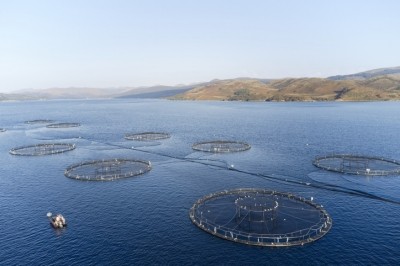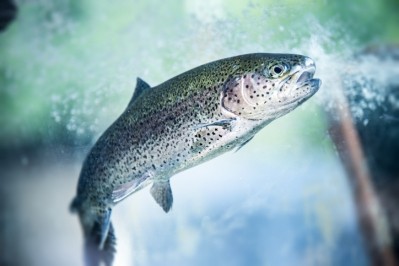F3 Challenge partners with fish producers to test fish-free fish oil

The global competition sponsored by the Future of Fish Feed (F3) seeks to speed the development and use of fish oil alternatives in aquaculture diets that still provide needed nutrition including omega-3 and omega-6 fatty acids such as DHA, EPA and ARA, according to competition details. Companies or teams participating are judged by total sales of their alternative oil during the competition period.
As the September 15 end of the competition nears, three aquaculture companies have signed on to test the winning formula. They include a major producer of Atlantic salmon – Mowi – and two China-based feed companies – Yuehai Feed Group and AlphaFeed.
Although there has been interest in developing and testing alternative aquafeed ingredients to alleviate the reliance on fish oil, information about the work that has been done is not always accessible, said Kevin Fitzsimmons, F3 Challenge chair and judge.
“One of the peculiar situations we face is that considerable research has already been accomplished verifying the nutritional equivalence of some of especially the algal oils,” he told FeedNavigator. “But the feed and farming industry often do not read some of these ... scientific articles.”
“The challenges and cash prizes have served to publicize this information and the commercial entities that currently exist with products on the market,” he added.
The current competitors include Netherlands-based Veramaris, two China-based teams Guangdong Evergreen Feed Industry Co Ltd and Shen Zhen Alpha Feed Co. Ltd and the UK/US-based team Aquaculture Innovation/Qualitas Health.
Currently, the four competitors have sold more than 472,000kg of fish-free fish oil, according to competition information. Veramaris is in the lead at this stage.
F3 Challenge background
Following the 2017 launch, 10 companies entered the F3 Fish Oil Challenge with a range of novel ingredients intended to provide an alternative to the use of fish oil in feeds. The companies faced a 16-month sales contest for a $100,000 prize.
The intention behind the competition is to accelerate commercial production and interest in feed ingredients that can be used to support farmed seafood production without relying on wild-caught fish, according to project information.
Annually, about 16m metric tons of wild fish are harvested to generate fish oil and fish meal as wild-caught fish provide a source of the fats needed to feed some species of farmed fish.
“These innovative companies are disrupting the industry to ensure consumers get the same positive health benefits from fish in the future without further depleting our oceans,” said Kevin Fitzsimmons, chair and judge of the F3 Challenge, at the start of the competition.
F3 challenge developments
There was interest in working with more than one feed company to provide feed trials as it would provide a “larger incentive to win,” said Fitzsimmons. The feeding trials are anticipated to involve salmon and other salmonids – trout, arctic char and graying – along with other farmed marine species like tuna, snapper, grouper, seabass and seabream.
“Similar commitments were made for the last challenge, which demonstrates the great interest by these big companies to test alternative ingredients and incorporate them in their feeds,” he said. “Everyone is now aware that fishmeal and fish oil are projected to be in short supply and those fisheries will collapse by 2037 under business as usual scenarios and are working towards a plan to continue aquaculture with alternative ingredients.”
Previously, the F3 organization had a similar competition focused on alternative fishmeal feed ingredients.
There also is a possibility that other companies could take part in testing the winning feed ingredients, said Fitzsimmons.
“We hope that other companies will commit to trials,” he said. “We will announce others as they make the commitment.”
Feeding trial interest
The competition's prize is being sponsored by the University of Arizona, University of Massachusetts Boston, Synbiobeta, Anthropocene Institute, Dawson Family Fund, Sustainable Ocean Alliance, The Nature Conservancy, The Campbell Foundation, Tides Foundation and The National Renderers Association.
“Research is an important step to better understand how a particular species, like salmon, will grow with the fish oil replacement,” Fitzsimmons said of the planned feeding trials.
Following the end of the challenge, the winning company or team will be put in contact with the companies that agreed to the feeding trials, he said. More details about some of the feeding trials are expected to be shared as they become available.
The trial with Mowi is set to take place in either Norway or Scotland using one of the company’s open-environment facilities, according to challenge information. The feeding trials will use the company’s low and zero fish oil diets and use the winning ingredient.
Current diets include less than 10% fishmeal and a similar inclusion level of fish oil, according to company information.
“The next important step is to ensure that the feed community has access to the trial results, which is why the information will be available through the F3 Feed Innovation Network,” Fitzsimmons said.















